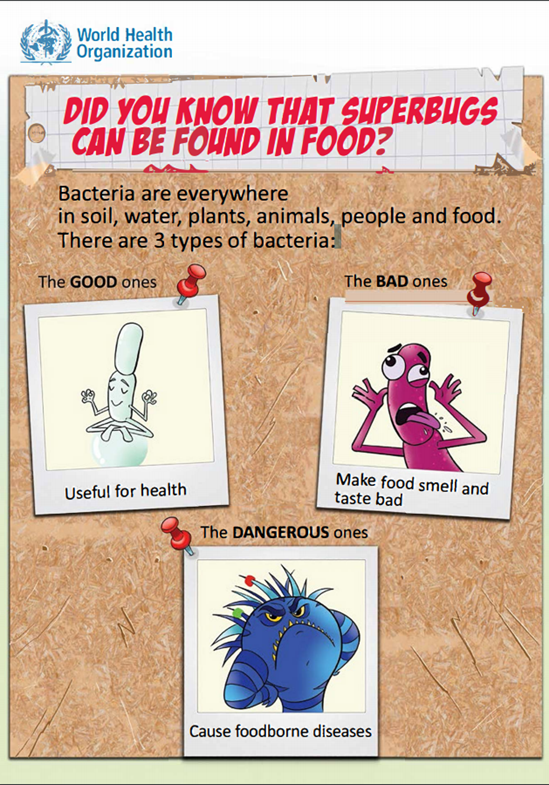Promoting safe food handling
- Keep clean
- Separate raw and cooked
- Cook thoroughly
- Keep food at safe temperatures
- Use safe water and raw materials
These are “Five keys to safer food”, which were developed to educate safe food handling behaviours to all consumers and food handlers.
Each year, 1 in 10 people get ill by eating unsafe food. While food safety is a shared responsibility, individual consumers and food handlers play a huge role in preventing foodborne diseases. “Five keys to safer food” messages were therefore developed, and validated by an independent body of international scientists in 2001, to empower all consumers worldwide with a simple and applicable set of actions to prevent foodborne diseases.
The poster with the Five Keys messages has been translated into 88 languages (as of October 2019) and are available online.


















